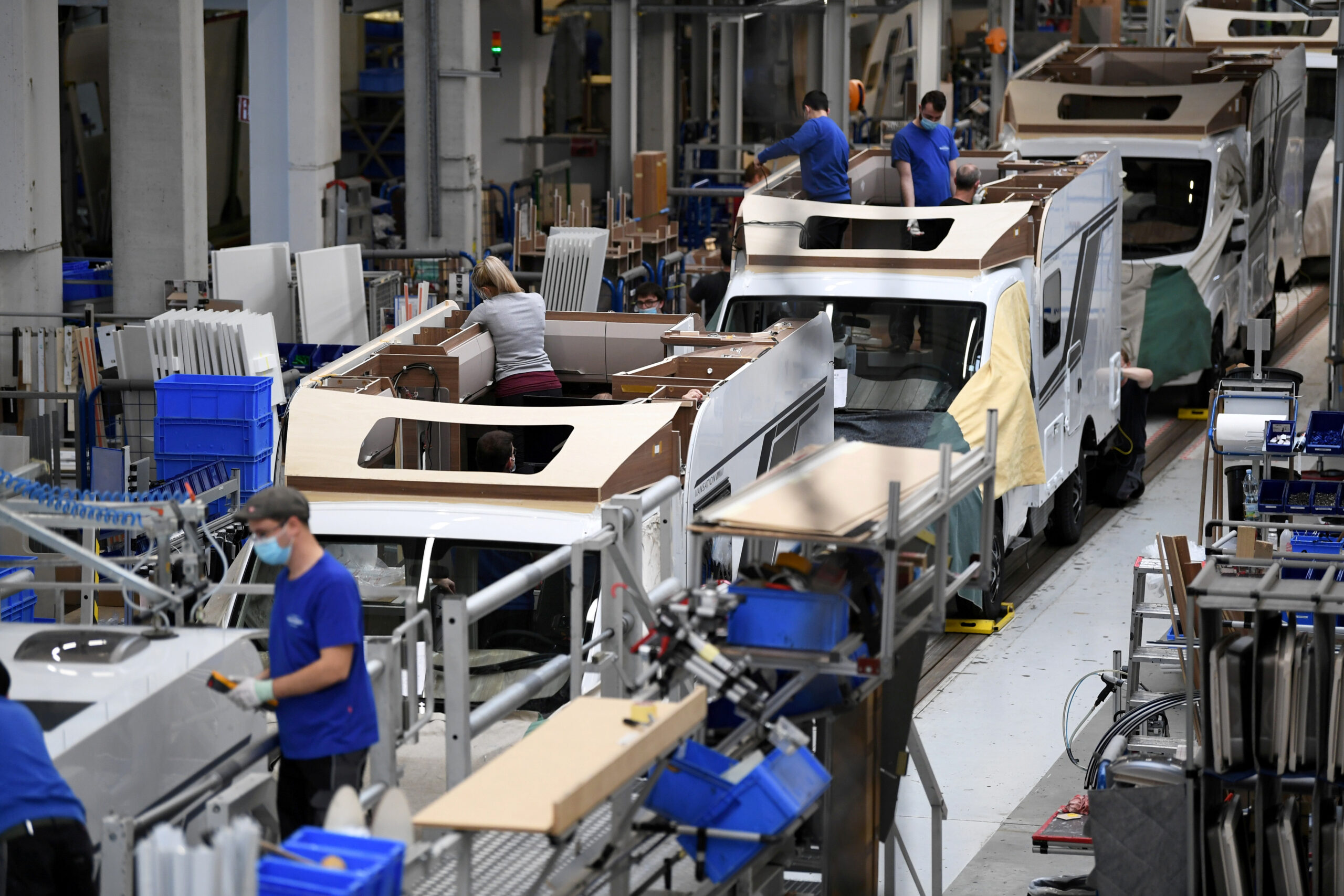German factory orders jumped ahead of US tariffs

FILE PHOTO: Workers assemble campers at Knaus-Tabbert AG factory in Jandelsbrunn near Passau, Germany, March 16, 2021. REUTERS/Andreas Gebert/File Photo
FRANKFURT, Germany — German industrial orders rose faster than expected in March, official data showed Wednesday, partly driven by companies rushing to stock up on goods ahead of sweeping US tariffs.
It represented rare positive news for Europe’s struggling top economy, but observers warned it was too early to conclude a sustainable recovery was underway as US levies could weigh later in the year.
New orders, closely watched as an indicator of future business activity in Germany, jumped 3.6 percent month-on-month, according to preliminary data from federal statistics agency Destatis.
Analysts surveyed by financial data firm FactSet had forecast a rise of just 0.5 percent. Orders had stagnated in February.
The economy ministry said in a statement the March increase “may be partly due to anticipatory effects in response to the announced US tariff increases”.
But it also noted increased demand for “Made in Germany” goods from other European countries, suggesting a “revival in investment activity”.
Nevertheless, a “renewed weakening of the industrial economy over the further course of the year cannot be ruled out” amid US President Donald Trump’s tariff blitz, the ministry warned.
Trump has hit nearly all US trading partners with a baseline 10-percent tariff rate, which came into effect in April, as well as other levies on specific sectors.
Another year of recession?
READ: German economy posts better than expected growth in Q1
The hardball US trade policy is threatening to push export-oriented Germany into recession for a third straight year.
The United States was Germany’s top trading partner in 2024, receiving huge quantities of its cars, chemicals and pharmaceuticals.
March’s jump in industrial orders was driven by increases in key areas like the auto sector, mechanical engineering and electrical equipment, according to Destatis.
Overseas orders rose by 4.7 percent and domestic orders were up two percent, it said.
Weak global demand, fierce competition from China and high energy prices have battered Germany’s industrial sector, which accounts for about one fifth of its economic output.
Reviving the economy is a key challenge for new Chancellor Friedrich Merz, but a hoped-for recovery this year now looks set to be derailed by Trump’s tariffs.


















